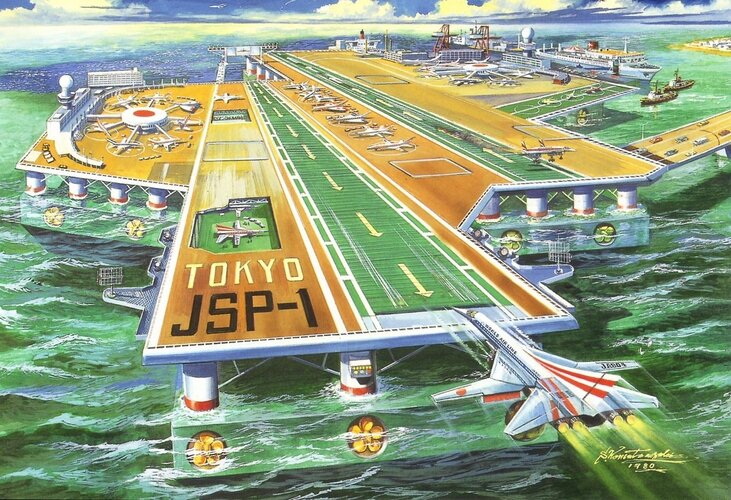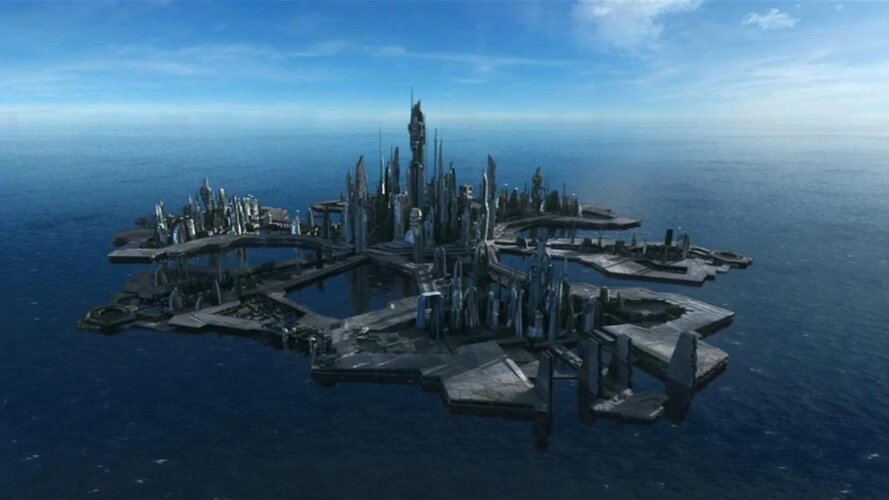There has been some pretty serious work done on building and running floating cities or more commonly, (within the last couple of decades at least) "Sea-steading" though that name itself has become more associated with the Libertarian/Micro-Nation movements. (
https://en.wikipedia.org/wiki/Seasteading)
The main ‘gist’ of the requirements for such a facility is really an economic driver, (aquaculture has been suggested and studied, Ocean Thermal Energy Conversion is another suggestion, algae culture for bio-fuel production, etc) along with a robust, expandable, and modular means of construction and support. Pneumatic Stabilized Platforms, Spar Floats, Semi-submersible and pontoon float systems have been extensively studied and even prototyped such as the US military “Mobile Offshore Base” concept. Russia is building and deploying floating nuclear power plants and we are well aware of floating alternate energy platforms.
It seems the main difference here is, (given the ‘sheltered waters’ location suggestion) not that these would be in open water but near continental and islands that are slowly being submerged arguably giving the floating cities some ‘links’ to the rest of the world that most open ocean colonization suggestions actively avoid. (Plug into traffic, trade, and communications but not actually ‘tied’ to any land mass) The idea I suppose that it would be less ‘jarring’ an experience which frankly I find doubtful at best.
The proposal and articles lack the applicable vocabulary and limited imagination I suspect is a direct effort by someone who is avoiding the “known” research and data base for the main reason that it is too connected to adverse ideas, concepts and ideologies. After all, who would expect Libertarians to support refugees, or the military to build self-sustaining floating cities instead of military bases. The thing is by ignoring these sources of information and research that explicitly sets back and marginalizes any suggested effort because you’re either repeating work or worse missing critical information.
It being UN sponsored I’m guessing that any association with or research done involving “Ocean Colonization” or “Sea-steading” would be frowned on due to the historical context and frankly in some cases current politics of those efforts. Still that’s where the work has been and Is being done so that’s where you need to go to get the current information and effort.
Randy
(I was in the Millennial Project, {
https://en.wikipedia.org/wiki/The_Millennial_Project} and since one of our "Eight Easy Steps" is Ocean Colonization we of course did and do a lot of work on this aspect of the "plan"

)

 www.nbcnews.com
www.nbcnews.com

 www.bbc.com
www.bbc.com








